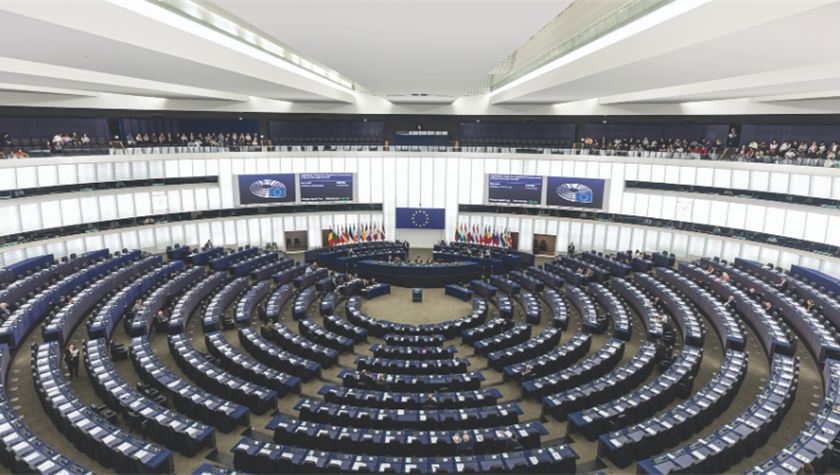Euroscepticism a major factor in Dublin’s EU race
Mike Finnerty 10 Apr 2024
2 months out from the chaos that is European elections, a narrative has set in; Ireland will be immune to the right-wing wave that is poised to sweep Europe in June.
Irish parties may differ on the detail, but there is nothing to indicate that Irish voters will be joining our friends on the continent in electing far-right MEPs.
Across Europe, far-right parties in Germany, France, Italy and the Netherlands are on track to become the biggest parties and upset the balance of power in the European parliament.
The most likely outcome of the election is EPP group (home of Fine Gael and Ursula Von Der Leyen) repeating their informal coalition with the S&D group (home of Labour’s continental cousins and one presumes, the Social Democrats) and the ALDE group (home of Fianna Fáil’s European partner parties).
There are a number of factors in play to the rise of the right-wing in Europe, but the main factor is Euroscepticism.
Much like Ireland, immigration has become the top issue on voters minds and to that end, the EPP have announced in recent weeks they will look to redraw the bloc’s migration rules.
This can be seen as the EPP, terrified of letting the far-right in, throwing them some bones and winning back a voter base they fear might bolt at any second.
You don’t need to look too far to see what happens when a traditionally centre-right party caters to a party on its right.
2014’s European elections in the UK saw UKIP scoop 24 of the 73 seats up for grabs and it marked the first time since 1906 that neither Labour or the Conservatives were the biggest party in a UK-wide election.
Cut to five years later, Boris Johnson carries out a Faustian pact with Nigel Farage which sees the Tories co-opt most of UKIP’s language and policy and hands him a landslide victory in the process.
As we noted in our deep dive on far-right parties in Ireland, you are more likely to see the existing major parties co-opt the language of the far-right in a bid to win votes as opposed to the far-right themselves winning a seat.
All that to say, Ireland will in all likelihood not elect a far-right MEP (in Dublin alone, you need an average of 16% of first preferences to get elected and the current polling shows no sign of that happening), but frustration with the European project will come in the form of a vote for Sinn Féin.
Far-right, anti-immigration parties that call for a withdrawal from the European Union are on the ballot in Dublin, but the best performance they can hope for is getting their deposit returned.
When the results roll in following June’s elections, European pundits will marvel that Ireland was somehow immune from their own version of AFD or Vox topping the polls.
As a matter of fact, Ireland already elects Eurosceptic MEPs, they just happen to be on the left.
Sinn Féin sits in the GUE/NGL grouping in the European parliament, which is also home to Mick Wallace and Clare Daly’s Independents4Change party, the Czech communist party, the Portuguese communist party, and Syriza, a former radical left party that famously watered itself down to cater to German austerity demands in 2015.
The GUE/NGL group is the furthest left grouping (obviously, we just cited that a communist party sits in it!) in the European parliament and could overtake the Green grouping come June.
Lynn Boylan is tipped to top the poll in Dublin, and during her time as an MEP between 2014 and 2019 she said that Ireland should not leave the EU but the institution itself should see “radical change.”
Matt Carthy, Sinn Féin’s foreign affairs spokesperson, said last May that Ireland would not withdraw from the Pesco agreement which enables military co-operation between EU member states.
This was a major change of heart from 2019, when Carthy said as an MEP that Europe was creeping towards a “fully-fledged EU army,” calling it a “serious risk to Irish interests and our government.”
The task for Sinn Féin is winning over enough Eurosceptic voters to win 2 seats and take out Clare Daly.
An unexpected surge from Daly ended up taking Boylan’s seat in 2019, but now it appears that the two could be elected together based on current polling.
Sinn Féin getting both Lynn Boylan and Daithí Doolan elected with Clare Daly also holding onto her seat is unlikely; that would mean 3 of the 4 MEPs elected by Dubliners sit in a grouping that looks to challenge the European Union from the left.
Political scientists agree that European elections are used as a protest vote, so if the voters of Dublin did return 3 Eurosceptic MEPs it would send a clear warning shot to the coalition parties.
Ireland is nominally a pro-European country (a 2022 Red C poll found that 79% of people said that EU membership has had a positive impact on their lives) but owing to the low turnout of European elections the people who turn up will most likely cast a vote with a mild flavour of Euroscepticism or reaffirm their support.
A lot has changed since 2022, and there is plenty of reason for the average voter (or at least, the ones who bother to vote) to believe the European project has gone downhill since then.
In Dublin, Barry Andrews is likely to be re-elected for Fianna Fáil meaning that the European project does have broad support among North and Southsiders.
Fine Gael getting Regina Doherty elected alongside Andrews would also prove there is plenty of grá for the EU in our fair city.
The most likely outcome is that Dubliners elect 2 MEPs who are pro-European Union and 2 candidates are nominally anti-European Union.
If that balance becomes 3-to-1 in either direction, it would show that Dubliners are either content with Europe as it stands or want the system to undergo a drastic overhaul.
Sinn Féin have form in objecting to the EU; we only need to look at the Lisbon campaigns of 2008 and 2009 to see they are by definition, the only major party in Ireland that has elected representatives that were against the centralisation of European power.
In some bizarro universe where the Lisbon Treaty was being held in 2024, it isn’t clear if Sinn Féin would campaign for a Yes or No vote.
The Sinn Féin that upset the apple cart in 2020 would have been a staunch No, but the Sinn Féin that has spent the last year telling voters they are ready for government, won’t tax major international corporations, want to have a “respectful” debate on immigration, and have no coherent environmental policy would probably vote Yes.
Over the next few weeks, we will see if Sinn Féin leverage their historical Euroscepticism or if the party truly has shed their leftist roots in their bid for power.











